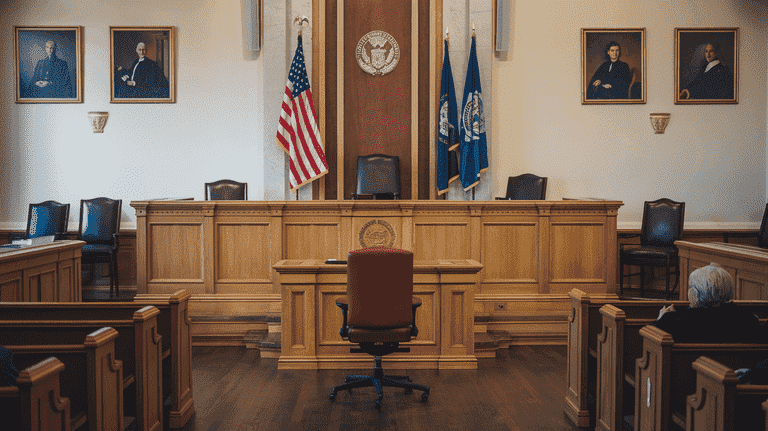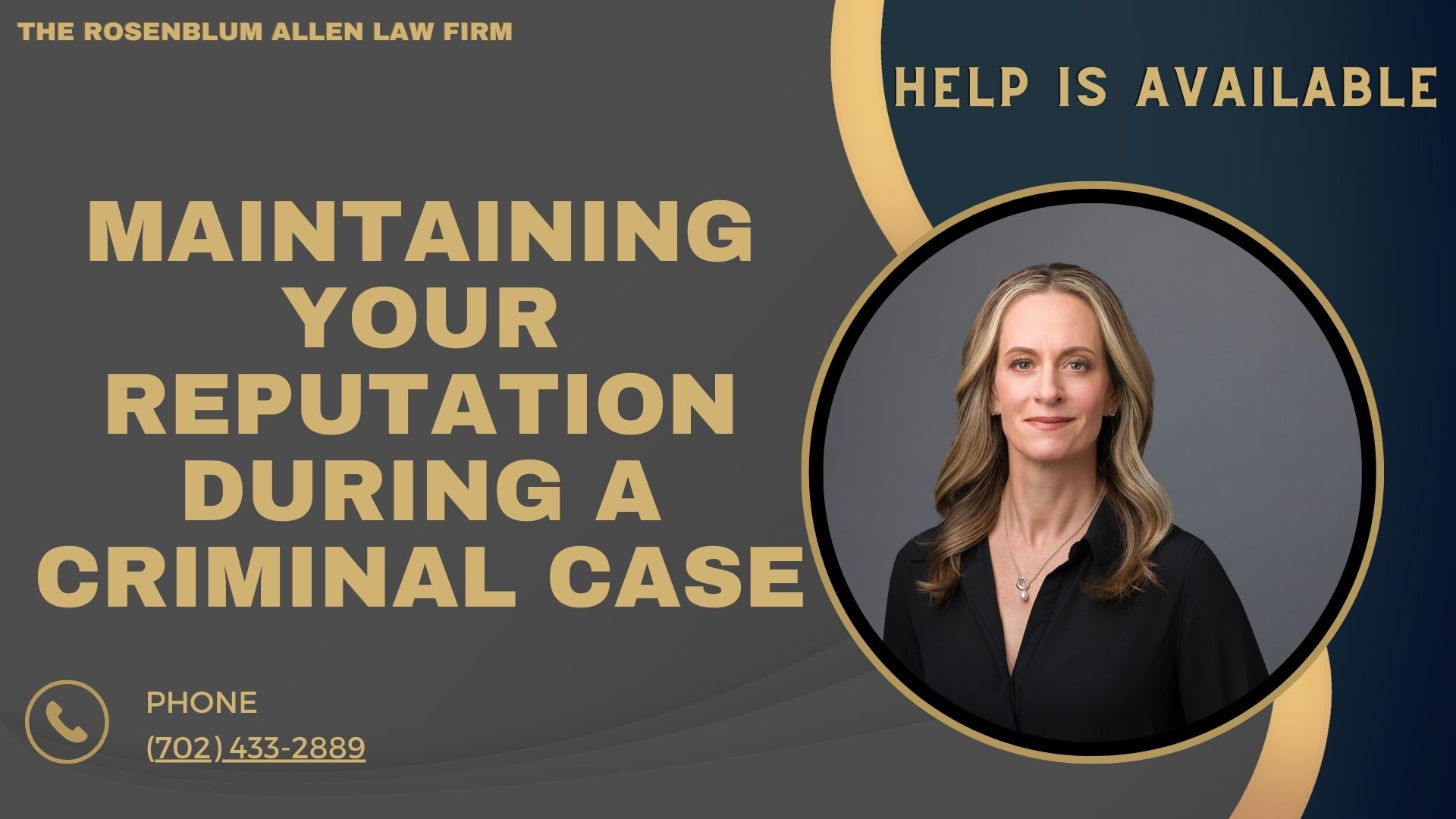Facing a criminal case is stressful, and it can feel like your entire life is under scrutiny. One of the most challenging aspects is managing your reputation. A tarnished image can affect your relationships, job prospects, and overall future. However, you can protect your reputation and minimize the impact with the right strategies. This guide will help you navigate this difficult time with tips to maintain your integrity and public image.
Understanding the Stakes
Your reputation is at serious risk when you’re involved in a criminal case. Beyond the immediate legal consequences, the social and professional fallout can be long-lasting. People may judge you based on allegations rather than facts, and even if you’re found not guilty, the damage to your reputation can linger.
Impact on Personal and Professional Life
- Personal Relationships: Friends and family might distance themselves, and trust can be eroded.
- Employment: Current jobs may be at risk, and future opportunities could be limited.
- Social Standing: Your involvement in community and social groups may suffer, leading to isolation.
Long-Term Consequences of a Damaged Reputation
- Loss of Trust: Once trust is broken, it can take years to rebuild.
- Financial Hardships: Legal issues often come with financial burdens, and losing your job due to reputation damage can compound these difficulties.
- Mental Health Impact: The stress of maintaining a positive image under scrutiny can lead to anxiety, depression, and other mental health concerns.
Engaging Legal Counsel
One of the first steps in protecting your reputation is hiring an experienced criminal defense attorney. Your lawyer isn’t just there to handle the legal aspects—they can also provide valuable advice on managing your public image.
Importance of Hiring an Experienced Criminal Defense Attorney
- Expertise: A skilled attorney knows how to navigate the complexities of both the legal system and public perception.
- Reputation Management: They can help you avoid missteps that could damage your case and image.
How Legal Counsel Can Help Manage Public Perception
- Crisis Management Strategies: Your attorney can guide you on how to respond—or not respond—to media inquiries and public speculation.
- Media Relations Advice: Lawyers often work with PR professionals who specialize in managing high-profile cases. They can advise on crafting statements and avoiding common pitfalls that harm reputations.
Managing Public Statements
When facing a criminal case, what you say publicly matters greatly. Even a seemingly innocent comment can be twisted or used against you. Being mindful of your words and who you share them with is crucial. Managing your public statements wisely can help protect your reputation from unnecessary damage.
The Risks of Speaking Publicly About Your Case
- Unintended Consequences: Casual remarks can be misinterpreted.
- Legal Implications: Statements made in public can be used in court.
- Fueling Gossip: The more you talk, the more others speculate and spread rumors.
Tips for Communicating with the Media
Dealing with the media can be daunting. It’s easy to feel overwhelmed, especially if you’re unfamiliar with how to navigate their questions. Here are some tips to keep in mind:
- Refer to Your Lawyer: Always direct questions to your attorney. They know what can and can’t be said.
- Keep It Brief: If you must speak, keep your statements short and neutral.
- Avoid Emotional Responses: Defending yourself passionately is tempting, but staying calm and composed is key.
The Role of Your Attorney in Media Interactions
Your attorney is your best ally in handling the media. They can:
- Craft Statements: Your lawyer can help write statements that protect your interests.
- Act as a Spokesperson: Let your attorney handle direct media interactions to avoid pitfalls.
- Advise on Interviews: If an interview is unavoidable, they can prepare you on what to say and what not to say.
Using Social Media Wisely
Social media feels like a personal space, but it’s anything but private during a criminal case. Posts, comments, and even likes can be scrutinized.
Avoiding Incriminating Posts
- Think Before You Post: Ask yourself if your content could be misinterpreted or used against you.
- Avoid Discussing the Case: Don’t post about your case, no matter how vague you think you’re being.
- Stay Positive: If you must post, focus on neutral or positive content that reflects well on you.
Privacy Settings and Their Limitations
- Tighten Privacy Controls: Review your settings to limit who can see your content.
- Remember Nothing Is Truly Private: Even with strict settings, assume anything you post could become public.

Controlling Your Narrative
People will form opinions based on what they hear and see in a criminal case. It’s essential to take control of your narrative and actively manage how you’re perceived.
The Importance of a Consistent Message
A clear, consistent message helps prevent misunderstandings and rumors. Stick to key points and avoid straying off-topic.
- Work with Professionals: Public relations professionals can guide you in shaping a message that reflects your integrity.
- Repeat Your Key Points: Repetition reinforces your message and makes it stick in people’s minds.
Leveraging Positive Stories and Testimonials
- Highlight Good Deeds: Share positive actions you’ve taken, like volunteering or helping others.
- Use Character References: Positive testimonials from respected individuals can bolster your reputation.
Working with a Public Relations Professional
Navigating public perception can be tough on your own. A PR professional can be invaluable.
Crafting Statements That Reflect Your Integrity
- Be Genuine: Authenticity builds trust. People respond well to honesty.
- Focus on Positives: Highlight your strengths and positive contributions.
Addressing Negative Publicity Effectively
- Respond Calmly: If negative stories arise, respond with grace. Avoid escalating the situation.
- Correct Misinformation: If something untrue is being spread, calmly provide the correct information through your attorney or PR representative.
By managing your public statements and controlling your narrative, you can take significant steps toward protecting your reputation during this challenging time. Next, we’ll explore how to maintain professional relationships and protect your online reputation.
Maintaining Professional Relationships
Navigating your professional life during a criminal case can be tricky. Worrying about how your situation will affect your job and colleagues is natural. By handling these relationships thoughtfully, you can minimize the impact on your career.
Communicating with Employers and Colleagues
Honesty is important, but it’s also essential to maintain your privacy. Deciding how much to share and with whom can be a delicate balance.
- Know Your Rights: Before you disclose anything, understand your company’s policies on criminal charges. Your lawyer can help you with this.
- Be Proactive if Necessary: If your case might affect your job directly, like missing work for court dates, it’s better to inform your employer early.
- Keep It Professional: Share only what’s necessary. Avoid going into details about your case with colleagues.
Managing Your Reputation Within Professional Networks
Even if you aren’t directly sharing information, your case might become known within your professional circles. Here’s how to manage that.
Disclosure of Your Situation When Necessary
- Keep It Brief and Factual: If disclosure is necessary, keep the information straightforward and focused on your steps to address the situation.
- Focus on Your Commitment: Emphasize your dedication to your work and your intention to continue performing well.
Protecting Your Professional Standing During Proceedings
- Continue Performing at Your Best: Maintaining your work quality can reassure your employer and colleagues of your professionalism.
- Engage in Professional Development: Take opportunities to learn and grow professionally. This shows you’re committed to your future despite current challenges.

Building a Positive Image in Your Community
Your community is a robust support network, and how you engage with it during this time can significantly influence your reputation. You can counteract negative perceptions by staying active and showing your positive side.
Engaging in Community Service or Volunteer Work
Being involved in your community doesn’t just help others—it shows that you care and are dedicated to making positive contributions.
- Find Causes You’re Passionate About Volunteering for causes that matter to you will feel genuine and impactful.
- Be Consistent: Regular involvement shows commitment and helps build a positive narrative around your name.
Showing Commitment to Personal Growth and Rehabilitation
Taking steps to better yourself demonstrates that you are responsible and dedicated to making positive changes.
Taking Responsibility Where Appropriate
- Acknowledge Mistakes: If appropriate, admitting where you’ve gone wrong can earn respect and show maturity.
- Highlighting Steps Towards Positive Change: Show that you’re taking tangible steps to improve, whether through therapy, education, or community work.
Highlighting Steps Towards Positive Change
- Enroll in Relevant Programs: This could include anger management, substance abuse programs, or other relevant courses.
- Share Your Journey: Without oversharing, letting people know you’re working on personal growth is okay.

Handling Court Appearances
Court appearances are critical to your case, and how you present yourself can significantly impact perceptions. It’s not just about what you say but how you look and act.
The Importance of Appearance and Demeanor in Court
Your appearance in court speaks volumes. It shows the judge, jury, and others involved that you take the process seriously.
Dress Code Guidelines
- Dress Conservatively: Choose clean, well-fitting professional attire, such as suits, blazers, and modest clothing.
- Avoid Flashy Accessories: Keep jewelry and accessories simple. You want to focus on your case, not your outfit.
Conduct During Legal Proceedings
- Be Respectful: Address the judge and all court officials respectfully. Use “Your Honor” and remain polite.
- Stay Calm: Even if things get tense, keep your emotions in check. Losing your temper can harm your case and your reputation.
- Listen Carefully: Pay close attention to what’s being said. This shows you’re engaged and respectful of the process.
Handling yourself well in court can significantly influence your reputation within the legal system and with anyone observing the proceedings. Next, we’ll look at how to protect your online reputation and effectively engage with your support networks.
Protecting Your Online Reputation
In today’s digital age, your online presence can shape public perception as much as real-life interactions. Your digital footprint can become a focal point during a criminal case. Protecting your online reputation requires vigilance and proactive measures.
Monitoring Your Online Presence
Your online reputation doesn’t just involve what you post; it also includes what others say about you. Regularly monitoring your online presence is crucial.
- Set Up Alerts: Use tools like Google Alerts to notify you when your name is mentioned online. This helps you stay on top of new content that could affect your reputation.
- Regular Searches: Periodically search your name and review the results. This simple step can uncover unflattering or incorrect information that needs addressing.
Legal Options for Removing Harmful Content
In some cases, harmful content may require legal intervention to remove. Here’s how you can approach it:
- Request Takedowns: If the content violates terms of service or is defamatory, you may be able to request its removal directly from the platform.
- Cease and Desist Letters: Your attorney can issue cease and desist letters to those spreading harmful information.
- Legal Action: Legal action can be taken against individuals or entities that refuse to remove damaging content.
Working with Online Reputation Management Services
Sometimes, managing your online presence can feel overwhelming. Online reputation management services can:
- Clean Up Your Search Results: They can work to push down negative search results and promote positive content.
- Help You Build a Positive Digital Presence: These services often help create positive content that reflects well on you, improving the overall perception.

Engaging with Support Networks
A solid support network can make all the difference when facing a criminal case. Family, friends, and other supportive connections can provide the emotional and practical help you need.
Leaning on Family and Friends for Support
Your loved ones are likely concerned about you and want to help. Don’t hesitate to lean on them.
- Be Open About Your Needs: Whether it’s emotional support or help with daily tasks, let your friends and family know how they can assist you.
- Keep Communication Open: Regularly update them on your case as much as you’re comfortable sharing. This can prevent misunderstandings and keep your relationships strong.
The Role of Character Witnesses in Court
Character witnesses can be a powerful tool in court, offering a personal perspective on your character and behavior.
- Select Credible Individuals: Choose people who know you well and can speak honestly about your positive traits.
- Prepare Thoroughly: Your attorney can guide them on what to expect and how to present their statements effectively.
Connecting with Support Groups or Counseling
Support isn’t just about having people to talk to; it’s also about finding the correct help for your mental and emotional well-being.
- Join Support Groups: Look for groups specific to your situation. Connecting with others facing similar challenges can provide comfort and practical advice.
- Seek Professional Counseling: A counselor or therapist can help you manage stress, anxiety, and other emotions during this challenging time.
By protecting your online reputation and engaging with support networks, you can build a strong foundation that helps preserve your image while providing the emotional resilience needed to navigate your criminal case.
Protecting Your Online Reputation
In today’s digital age, your online presence can shape public perception just as much as real-life interactions. During a criminal case, your digital footprint can become a focal point. Protecting your online reputation requires vigilance and proactive measures.
Monitoring Your Online Presence
Your online reputation doesn’t just involve what you post; it also includes what others say about you. Regularly monitoring your online presence is crucial.
- Set Up Alerts: Use tools like Google Alerts to notify you when your name is mentioned online. This helps you stay on top of new content that could affect your reputation.
- Regular Searches: Periodically search your name and review the results. This simple step can uncover unflattering or incorrect information that needs addressing.

Breaking It All Down
Maintaining your reputation during a criminal case is difficult, but it’s possible with the right approach. Your reputation is a valuable asset, and protecting it can impact your life, even beyond the courtroom. By taking proactive steps, engaging with the right professionals, and leaning on your support networks, you can navigate this challenging period with your integrity intact.
Recap of the Importance of Maintaining Your Reputation
Your reputation is more than just what others think of you—it influences your opportunities, relationships, and even how you view yourself. During a criminal case, every action and statement matters. From how you dress in court to how you manage your online presence, each choice shapes public perception.

Frequently Asked Questions
What should I do if the media contact me about my criminal case?
If you’re the media contact you, it’s best to refer all inquiries to your attorney. They are experienced in handling media interactions and can provide statements that protect your interests. Avoid speaking directly to the media without professional guidance.
Can I talk about my case on social media if my privacy settings are strict?
Even with strict privacy settings, it’s discussing your case on social media is risky. Screenshots can quickly be taken, and information can spread beyond your control. It’s safest to avoid posting anything related to your case online.
How can a public relations professional help me during a criminal case?
A public relations professional can help craft a positive narrative about your situation. They can also assist in managing your public statements, addressing negative publicity, and promoting stories that reflect your integrity and positive actions.
Is it necessary to disclose my criminal case to my employer?
Disclosure depends on your specific circumstances, such as your job’s nature and employer’s policies. It’s best to consult your attorney to understand your obligations and the best communication approach with your employer.
What can I do if false information about my case is spreading online?
You can contact the website owner to request corrections or removal if you find false information online. You may also report defamatory content to the platform hosting it. For persistent issues, your attorney or a reputation management service can help with legal options to address the misinformation.
Can engaging in community service help my case and reputation?
Engaging in community service or volunteer work can positively influence your reputation. It shows a commitment to contributing to society and demonstrates that you are taking proactive steps to make amends and improve yourself.
How can I maintain professionalism at work during my criminal case?
To maintain professionalism, focus on your work performance, be punctual, and stay committed to your responsibilities. If you need to attend court or meetings related to your case, communicate clearly with your employer and manage your time effectively.
What role do character witnesses play in my criminal case?
Character witnesses can testify to your positive traits, behavior, and reputation. Their statements can offer a personal perspective that supports your defense, helping to humanize you in the eyes of the court.
Are there legal options for protecting my reputation during a criminal case?
Legal options include:
- Issuing cease and desist letters.
- Pursuing defamation claims.
- Working with your attorney to remove harmful content.
These actions can help protect your reputation from false or damaging information.
How can I stay mentally and emotionally resilient during this time?
Staying resilient involves:
- Leaning on supportive friends and family.
- Engaging in stress-relieving activities.
- Seeking professional counseling if needed.
Connecting with support groups specific to your situation can provide comfort and practical advice.

Additional Resources for You from The Rosenblum Allen Law Firm.
In addition to helping with appeals, our lead attorney, Molly Rosenblum Allen, Esq., has created various resources to support you in other legal matters:
- Criminal Defense Attorneys: Comprehensive defense strategies for criminal charges.
- Las Vegas DUI Lawyer: Effective representation for DUI charges in Las Vegas.
- Domestic Violence Lawyer Las Vegas: Protection and defense in domestic violence cases.
- Drug Possession Lawyer: Legal assistance for drug possession charges.
- Sex Crimes Attorney: Defense for those accused of sex crimes.
- CPS Defense Attorney: Help with Child Protective Services (CPS) cases.
- Misdemeanor Lawyer: Defense against misdemeanor charges.
- Las Vegas Warrant Defense Attorney: Assistance with active warrants in Las Vegas.
- Las Vegas Probation Violation Attorney: Defense for probation violations.
- Theft Crime Defense Lawyer: Representation for theft-related charges.
- Kidnapping Lawyers: Legal defense for kidnapping accusations.
- Juvenile Defense Lawyers: Protecting the rights of juveniles in court.
- Firearms Lawyer Las Vegas: Legal guidance for firearm-related charges.
These resources are designed to provide you with the knowledge and support needed to navigate these challenging legal issues.

Offsite Resources for You
American Bar Association (ABA): https://www.americanbar.org/
The ABA provides extensive resources and information on the legal process, including articles and guides on appeals and other legal topics.
National Association of Criminal Defense Lawyers (NACDL): https://www.nacdl.org/
NACDL offers resources and advocacy for criminal defense attorneys and individuals facing criminal charges, including insights on appeals.
Nevada Judiciary: https://nvcourts.gov/
The official website of the Nevada Judiciary provides direct access to court information, forms, and procedures for appeals and other legal processes.
FindLaw: https://www.findlaw.com/
FindLaw offers a comprehensive collection of legal articles, case law, and guides on various legal topics, including the appeals process.
Justia: https://www.justia.com/
Justia provides free access to a wide range of legal information, including resources related to appeals and Nevada-specific legal issues.
Martindale-Hubbell: https://www.martindale.com/
Martindale-Hubbell offers lawyer directories and legal articles, helping individuals connect with qualified attorneys and learn more about the appeals process.
National Center for State Courts (NCSC): https://www.ncsc.org/
NCSC provides information on court systems, including appeals processes, court administration, and resources for those involved in legal proceedings.

A Special Message from Our Lead Attorney, Molly Rosenblum Allen, Esq

Thank you for taking the time to read through our resources. Navigating legal challenges, especially when you’re far from home, can be overwhelming, but you don’t have to go through it alone. If you need help with your situation or have any questions, please don’t hesitate to reach out. Give me and my team a call at (702) 433-2889, and let’s get the ball rolling. We’re here to support you every step of the way.
Looking forward to speaking with you soon!







